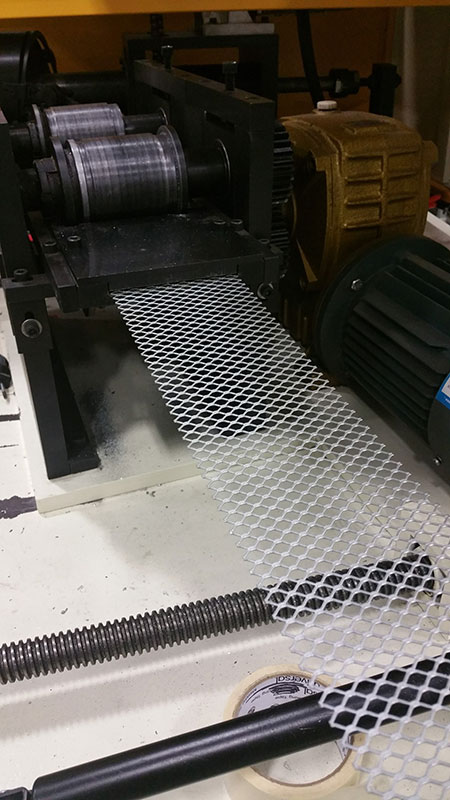The Importance of HVAC Sound Barriers in Modern Architecture
In today's fast-paced world, the significance of creating comfortable indoor environments cannot be overstated. One critical aspect of maintaining such environments is the efficient operation of Heating, Ventilation, and Air Conditioning (HVAC) systems. However, a common challenge faced by these systems is the generation of noise, which can disrupt the tranquility of spaces. This is where HVAC sound barriers play a crucial role.
Understanding HVAC Noise
HVAC systems are essential for regulating indoor temperature and air quality, yet they are often a source of unwanted noise. This noise can arise from various components, including blowers, compressors, and ductwork. The sound produced can range from a low hum to a disruptive roar, depending on the system's design, size, and operation condition. Not only can this noise be bothersome in residential settings, but it can also impact productivity and concentration in commercial environments.
The Role of Sound Barriers
To mitigate HVAC noise, sound barriers are employed as effective solutions. These barriers can take various forms, including architectural elements, insulation materials, and dedicated soundproofing panels. The primary goal is to absorb, reflect, or dissipate sound waves generated by the HVAC system, thereby reducing the overall noise level in a space.
1. Architectural Sound Barriers In building design, sound-reducing materials can be incorporated into walls, ceilings, and floors. For example, thicker walls made from solid materials like concrete can effectively block sound transmission, while sound-absorbing materials such as acoustic panels can be installed to minimize reverberation and echo, creating a quieter environment.
2. Insulation Materials Insulating ducts and piping can significantly reduce noise transmission. Materials such as fiberglass and foam serve to absorb noise, preventing it from traveling through the ductwork and into living or working spaces. Properly insulated systems can operate more quietly and efficiently.
3. Dedicated Soundproofing Panels In instances where noise levels are particularly high, dedicated soundproofing panels can be installed around the HVAC equipment. These panels are designed specifically to dampen sound, offering a high level of absorption and reflection. They can be easily integrated into existing spaces without major renovations.
hvac sound barrier

Benefits of HVAC Sound Barriers
Implementing sound barriers in HVAC systems offers numerous benefits
- Enhanced Comfort By reducing noise levels, sound barriers contribute to a more comfortable indoor atmosphere. This is particularly beneficial in residential homes, offices, schools, hospitals, and any other facilities where quiet is essential.
- Increased Productivity In commercial settings, lower noise levels can lead to heightened concentration and productivity. Employees are less likely to be distracted by disruptive sounds, encouraging a more focused work environment.
- Improved Health and Well-being Excessive noise can contribute to stress and fatigue. By creating quieter settings through sound barriers, individuals can experience improved mental well-being and better overall health.
- Energy Efficiency Soundproofing and insulation measures can contribute to energy efficiency as well. A quieter HVAC system is often a more efficient one, as less energy is wasted on noise generation and sound transmission.
Conclusion
As architects and builders focus on creating innovative and comfortable spaces, the importance of HVAC sound barriers must not be overlooked. By incorporating effective soundproofing measures, it is possible to enhance the functionality of HVAC systems, improve indoor comfort, and promote a healthier environment. Whether in residential, commercial, or industrial settings, sound barriers serve as essential components in the quest for quieter, more efficient living spaces. Investing in these solutions is a step towards achieving optimal indoor environments that cater to modern living demands.
-
Why Galvanized Trench Cover Steel Grating Resists Corrosion
NewsJul.10,2025
-
The Versatility and Strength of Stainless Expanded Metal Mesh
NewsJul.10,2025
-
Load Calculations in Steel Grating Platforms
NewsJul.10,2025
-
Keeping Pets and Kids Safe with Chicken Wire Deck Railing
NewsJul.10,2025
-
Hole Diameter and Pitch for Round Perforated Metal Sheets
NewsJul.10,2025
-
Aluminium Diamond Mesh in Modern Architecture
NewsJul.10,2025
Subscribe now!
Stay up to date with the latest on Fry Steeland industry news.

